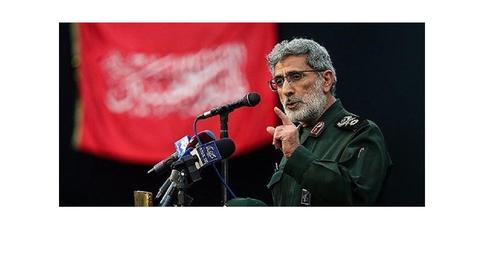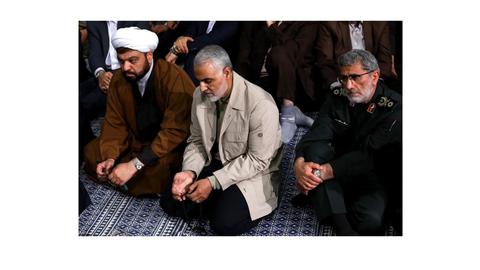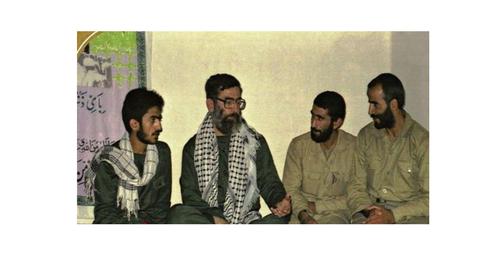Supreme Leader Ayatollah Khamenei has appointed Ismail Qaani as the new commander of the extraterritorial Quds Force of the Revolutionary Guards, following the death of Ghasem Soleimani, who was killed by US forces on January 3, 2020.
Identifying a successor for Soleimani, who was known throughout the region and the world as a charismatic leader of Iran’s most important military operations, was potentially a difficult task for Supreme Leader Ali Khamenei. Over the last decade or more, Soleimani had come to symbolize not only the extraterritorial Quds Force he commanded, but the Islamic Revolutionary Guards Corps, as Iran’s most influential and monumental organizational powerhouse, in its entirety. The charismatic Soleimani had also represented Iran to the world, a solid reminder of the Islamic Republic’s military and ideological might, and a champion for those who support the regime, both inside and outside the country.
Khamenei’s quick appointment of Ismail Qaani as the new Quds Force commander was designed to give the impression that nothing had changed: the unit would continue to operate exactly as it had before, unshaken by the dramatic event that led to Soleimani’s death. However, Qaani, who had been Soleimani’s deputy, has not enjoyed the same status or popularity within the wider Guards apparatus that Soleimani did, although the public is somewhat familiar with him due to his frequent, famous political addresses, which are reported to be very well-rehearsed but less engaging than Soleimani’s speeches, although both men have had the tendency to focus on the propagandist strategy of praising the “martyrs” of the Iran-Iraq war.
Khamenei passed over qualified figures including Gholamali Rashid and Mohammed Kowsari, among the first generation of Guards commanders, and Ali Fadavi, from the next generation, to select Qaani, whose service with the Guards dates back to 1981, when he joined as a 20-year-old man, as the majority of Guards commanders have done, and was deployed to Kurdistan Province to suppress Kurdish protests. An article by Ali Alifoneh for the American Enterprise Institute for Public Policy Research using Persian-language open-source material reports that he was selected, along with Nour-Ali Shoushtari and Mohammad Baqer Ghalibaf, who later became mayor of Tehran, to form a Guards division from Khorasan province in December 1982. He was later appointed as head of the Fifth Nasr Division. Just after the war, in August 1988, Mohsen Rezaei, commander of the Revolutionary Guards at the time, appointed Qaani as the deputy commander of the Guards’ ground forces in Mashhad. The Basiji crackdown on protests there in 1992 may well have been overseen by Qaani.
During a surprise visit to Tehran by President Bashar al-Assad in March 2019, which was coordinated by General Soleimani without the government’s knowledge, Qaani told the media: "Those who need to know" were aware of the Syrian president's visit to Iran and "those who should not know, did not know.”
Qaani is familiar among Iran's allies in the Middle East, and that may have been one of the reasons for his appointment; his experience in Khorasan may be another.
As Soleimani’s former deputy, Qaani may be able to achieve the impact the Supreme Leader wants: the appearance of continuity, especially considering the fact that Qaani has the same approach to key aspects of commanding that Soleimani did, believing that commanders should take a lead role in combat, and not lead from the back. Qaani’s specific experience in operations in Afghanistan and Pakistan may also mean he is well placed to drive the Guards’ agenda as set out by the Supreme Leader.
Although Soleimani’s successor lacks the personality of his predecessor, it is worth noting (as Khamenei has no doubt done) that Soleimani was not always a celebrated figure, although he always used charisma as a key part of his military leadership. Khamenei may well see an advantage in appointing a commander who he can help develop the type of charisma he has in mind.
With the appointment of Qaani as the commander of the Quds Force, a new raft of operations could be ushered in, activities which may, in practice, increase the activities of the Guards, but will, at least for now, no longer wield the former power of propaganda it once did.
visit the accountability section
In this section of Iran Wire, you can contact the officials and launch your campaign for various problems


























comments